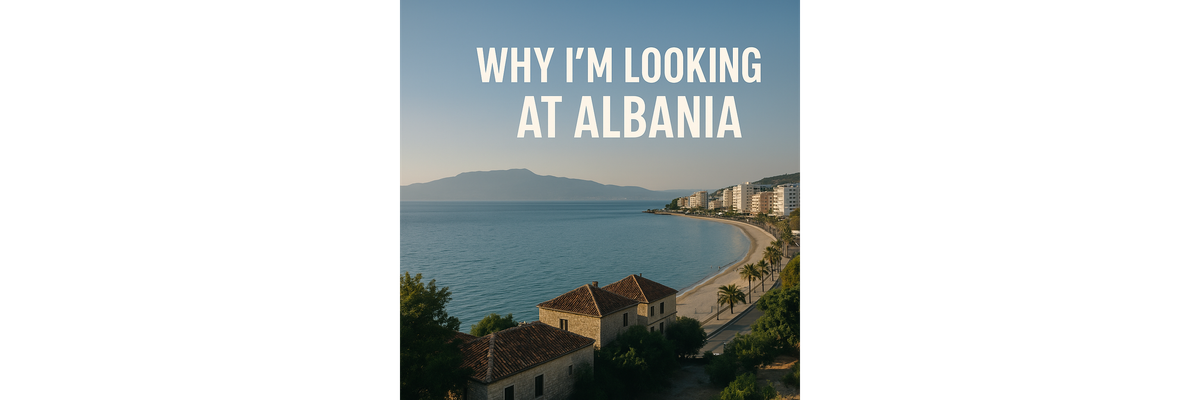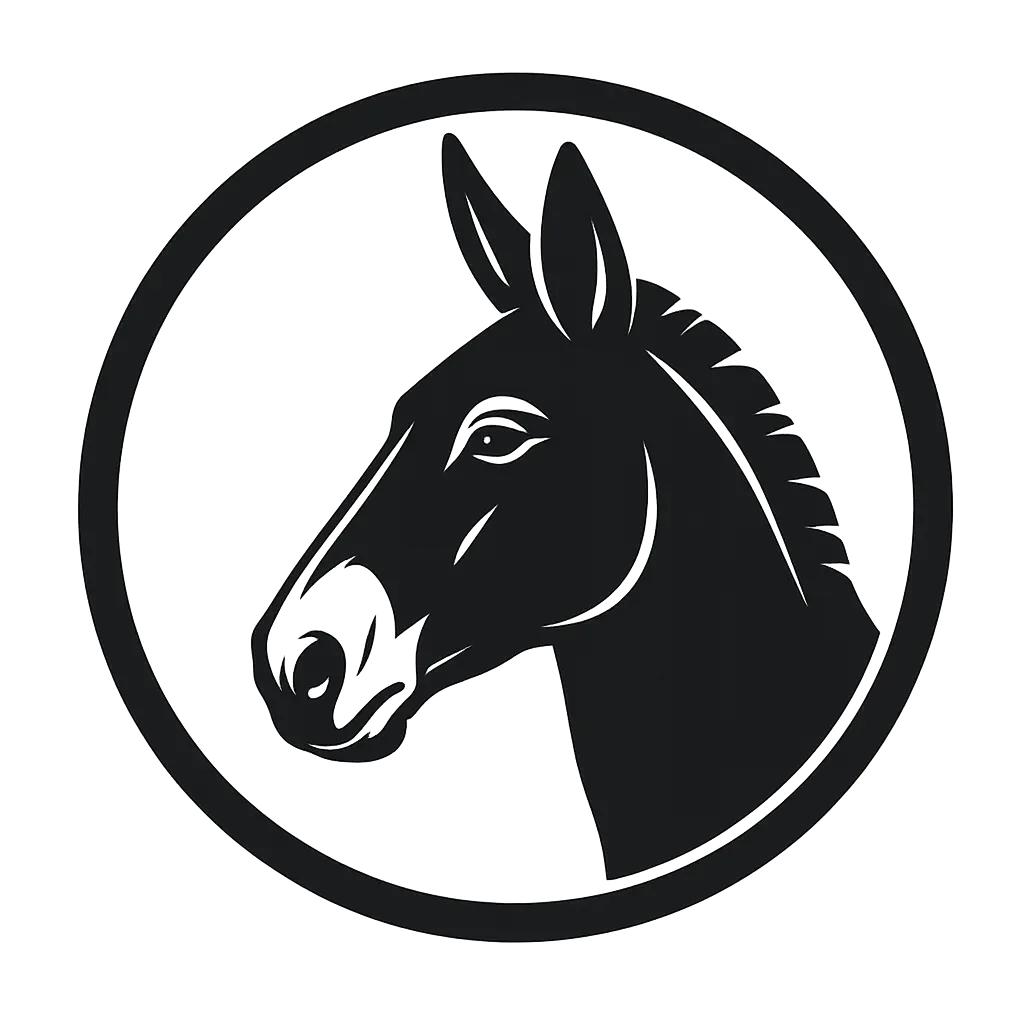Why I am Looking at Albania
I’m not chasing a fantasy of elsewhere. I’m chasing a better use of my remaining time. Albania keeps coming up because it offers something I can’t seem to buy in the States at any reasonable price: a quieter life that still feels alive.

I’m not chasing a fantasy of elsewhere. I’m chasing a better use of my remaining time. Albania keeps coming up because it offers something I can’t seem to buy in the States at any reasonable price: a quieter life that still feels alive.
What I want is simple. I want mornings that begin with a short walk to coffee, not a long drive to errands. I want a budget that buys time—time to write, read, and call the people I love—rather than buying square footage I barely use. I want streets that reward curiosity, not speed. Albania, from Tirana’s café lanes to the Adriatic towns, looks like a place built for human pace.
After decades of effort just to stay alive, my priorities have shifted. I’m no longer optimizing for for simple existance. I’m optimizing for clarity, for dignity in daily life, and for space to write without distraction. I don’t need more things; I need more time. I don’t need a bigger footprint; I need a simpler one.
America has its advantages—no one disputes that—but affordability, safety, and pace aren’t among them. The math of retirement in the U.S. rarely adds up unless you’re willing to work longer than your health allows or live smaller than your soul can stand. I’m not interested in either bargain. Albania seems to offer another way.
Numbers don’t lie. In Kansas City, rent on a one-bedroom in a decent building can chew up well over thirty-five percent of a fixed income. Groceries, transportation, etc. pile on. A life that should be peaceful becomes a juggling act.
In Tirana or Durrës, by contrast, a clean modern apartment with an elevator can be had for a fraction of that. Food is local, fresh, and affordable. Public transportation and walkability cut the need for a car. Every dollar stretches further, but more importantly, every dollar buys time instead of anxiety.
I’m not looking to live cheap for the sake of cheap. I’m looking to live simply without deprivation, to exchange “more stuff” for “more life.”
Albania has a reputation for hospitality that borders on legendary. Strangers greet you. Neighbors notice. Café culture is not an indulgence; it’s a way of life. There’s dignity in the ordinary: bread at the market, an evening stroll, a slow coffee with friends.
This is what pulls me: a culture that insists on connection. Too often in the States, life becomes transactional—rush in, swipe a card, rush out. Albania reminds me that living is not just about what you get done but about how you do it and with whom you share the moment.
Life moves slower there. Not idle, but unhurried. Streets are built for people rather than for cars. Children walk to school. Markets open daily. The rhythm of life seems designed for humans, not machines.
And then there’s safety. Albania is not free of crime—nowhere is—but it carries far less of the low-grade dread that shadows many American cities. I want a place where my grandchildren can visit without me worrying about them stepping off the porch.
Healthcare is not perfect. No place is. But Albania’s system, paired with private clinics, can handle most routine needs affordably. For more serious concerns, flights to Italy or Greece put top-tier hospitals within reach. The strategy is clear: handle the basics locally, keep a plan for bigger emergencies abroad.
It’s a trade-off, but a manageable one—especially compared with the impossible costs and bureaucracy of the American system.
Albania’s geography is a gift basket of contrasts. Tirana buzzes with energy: students, entrepreneurs, artists, cafés spilling onto sidewalks. Drive a couple of hours west and the Adriatic and Ionian coastlines open up—Durres, Vlore, Sarande—towns where the sea becomes your daily view. Head north to Shkodër and you meet the Albanian Alps, rugged and timeless.
This diversity means I wouldn’t have to choose between urban life, seaside quiet, or mountain air. All of it is within reach, and all of it feels alive.
I may crave simplicity, but I don’t want isolation. Albania offers good internet connectivity, making it possible to keep publishing, keep calling, keep showing up online. Tirana International Airport keeps Europe within reach—a short flight to Rome, Athens, Vienna.
For a writer, that’s all I need: the ability to upload words, stay in touch, and occasionally hop over to another city for inspiration.
No move is without friction.
- Language: Albanian is not an easy tongue to pick up, especially later in life. But the effort will matter. Even halting attempts earn goodwill.
- Bureaucracy: Residency, permits, paperwork—none of it is streamlined. It will require patience and persistence.
- Distance: Living abroad means being farther from people I care about, especially in emergencies. That weighs heavy.
But every worthwhile chapter requires some resistance. Friction is how you know you’re turning a page.
It isn’t just about rent or healthcare. It’s about integrity of days. About mornings with a notebook instead of commutes. About evenings where the loudest sound is conversation, not sirens. About trading a culture of constant striving for one of presence and belonging.
I want to live in a place where the math—money, time, attention—adds up to something human. A place where simplicity isn’t poverty, and community isn’t nostalgia. A place where I can keep writing, keep growing, keep being present for my family, even if from a distance.
Albania isn’t perfect. No place is. But perfection isn’t the goal. What matters is balance: a budget that frees me, a culture that grounds me, and a rhythm of life that slows me down just enough to notice it.
If that’s what I can build there—simple, honest, enough—then looking at Albania isn’t running away. It’s choosing how to stand. It’s about crafting a chapter that feels alive, not just endured.
That’s why I’m looking at Albania. Because in the end, life is not about where you’ve been but about where you choose to stand, and how you choose to live, with the time you have left.
